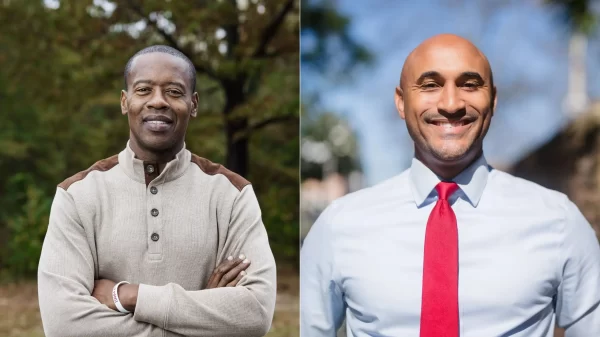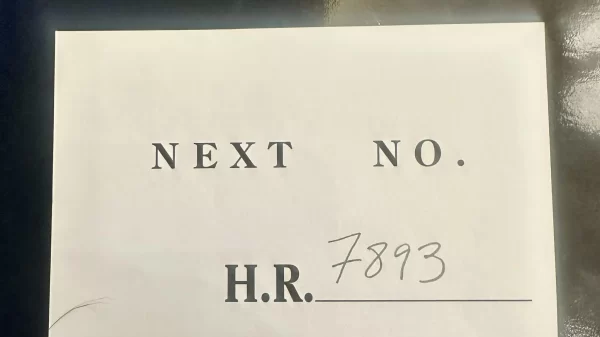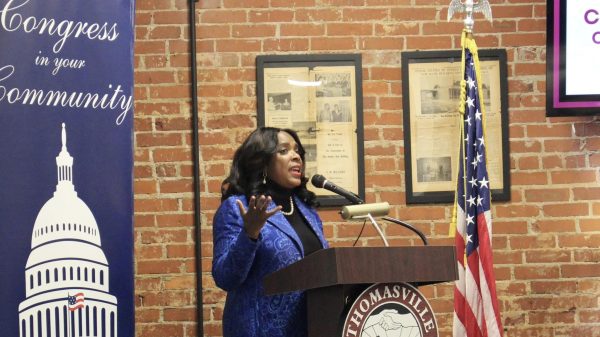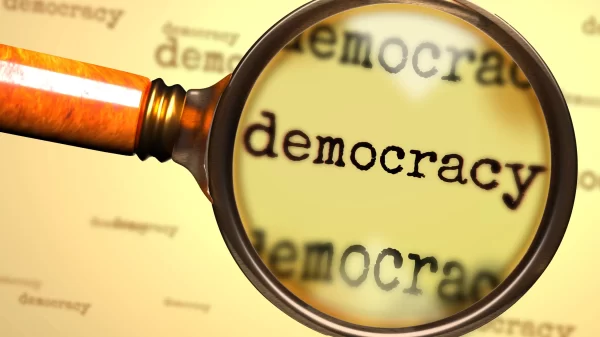By Senator Hank Sanders
Selma, AL – Every time I am stopped by law enforcement, I’m afraid. I recently shared this fear with a friend who is White. He said he understood, but it is very hard for most Whites to understand what it is like to be stopped by law enforcement when you are Black. I understand that difficulty, so I want to share why I’m afraid in spite of being a lawyer, a state senator, a graduate of Talladega College and Harvard Law School, a father of three lawyers, a husband of a lawyer, a grandfather of nine and a senior citizen. I am afraid, but I summon my courage.
I have had personal experiences that make me afraid. In 1979, I was in Detroit, Michigan in the church pastored by Rev. C.L. Franklin, the father of Aretha Franklin. A shooting occurred a couple of blocks away from the church that involved a policeman. The Detroit police came to the church and started shooting. We hid under the pews in fear of our lives. They stopped shooting and shouted for us to stand up with our hands over our heads. Every time we stood up with raised hands, the police started shooting again and we dived back under the pews. Finally, we were all standing with our hands up. A policeman ran down the church aisle with a shotgun shouting, “We can kill them all! We can kill them all!” I was afraid, but I summoned my courage.
While my hands were over my head, the same policeman threatened to shoot me. He also threatened to shoot a woman standing next to me with a baby in her arms because the woman refused to drop her baby on the floor to raise her hands. He then grabbed me and pushed me down, tearing my clothes. I was handcuffed for hours. I was afraid, but I summoned my courage.
The police arrested all of us. I could not believe that all 152 of us were arrested, including the children and babies. I thought Faya Rose’s and my being law students at Harvard Law School would make a difference. It didn’t make one iota of difference. I was afraid, but I summoned my courage.
A policeman threatened to shoot me in a municipal courtroom because I cross-examined him vigorously. He said I called him a liar. I did not. I did challenge him on inconsistencies in his testimony on a traffic case. The municipal judge did not say a word while the policeman repeatedly threatened to kill me in his court. I was afraid, but I summoned my courage.
I was sitting in my car waiting for Faya Rose to purchase some kind of chocolate fudge. As I recall, she was pregnant. I did not know that Black people were not allowed to go to this Dairy Queen in Selma. I saw a White man walk up to Faya as she was standing in line and push her down and stand over her. I jumped out of the car, ran over, and knocked him down. He stabbed me in the side with a knife. I was arrested in the hospital and subsequently convicted. Neither education nor status nor profession mattered. I was afraid, but I summoned my courage.
I could go on with additional personal stories. However, I am not afraid just because of personal experiences. I am afraid because more than 4,000 Black people, mostly men, were publicly lynched between 1865 and 1965. We don’t know how many tens of thousands more were murdered in cold blood. We do know that law enforcement did nothing about these lynchings even though most were performed in public. Law enforcement sanctioned these lynchings. Neither the government nor the people in general opposed these lynchings. It was state-sanctioned terrorism for a hundred years. I am afraid, but I summon my courage.
I see how often law enforcement kill Black men – over a hundred so far this year. I see how these lawmen are rarely charged. I see how the few who are charged are almost never convicted. I am afraid, but I summon my courage.
I know Black lives matter less than White lives. I know that during hundreds of years of chattel slavery, Blacks were considered sub-human. The Supreme Court set forth this doctrine as the highest law in the land in the 1857 Dred Scott case. When one group thinks that another is subhuman, it is easy to enslave, kill and abuse. I am afraid, but I summon my courage.
I know that the belief that Black people are less than White people did not stop with the end of slavery. It continued for another one hundred years in the form of segregation. The Plessy v. Ferguson Supreme Court decision legalized this practice. Black people were certainly separate but never considered equal. Even after segregation officially ended with the enactment of the 1964 Civil Rights Act and the 1965 Voting Rights Act, the construct of Black inferiority and White supremacy continued. I am afraid, but I summon my courage.
I am convinced that if I was stopped and killed by law enforcement this very day, nothing would likely be done about it. I know that the huge majority of lawmen will not kill me. However, I never know which of the small minority may kill me. I also know that too many other lawmen rally behind the ones who do kill. Too many lawmen consider it an attack on law enforcement just to say “Black lives matter.” I am afraid, but I summon my courage.
Finally, I am not afraid just for myself. The day my son Kindaka passed the Alabama Bar, he was beaten, arrested and charged by the Selma Police for no reason and for which he was ultimately completely cleared. Neither his Morehouse College and his Harvard Law School degrees nor his being a lawyer prevented police brutality. Yes, I am even more afraid for my son and grandsons by birth and for all my other sons and grandsons by heart. I know that they don’t have to do anything wrong in order to die. I hope this sharing will help us understand why millions of us are afraid but we summon our courage everyday and go on.
The roots of White supremacy and Black inferiority reach so deep. The great tragedy is that we don’t even see the trees so we fail to even search for the roots.






















































